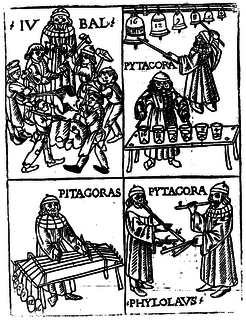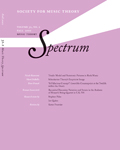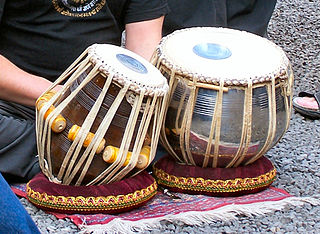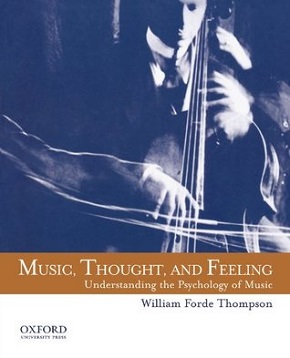Musicology is the scholarly analysis and research-based study of music. Musicology departments traditionally belong to the humanities, although music research is often more scientific in focus. A scholar who participates in musical research is a musicologist.

Music theory is the study of the practices and possibilities of music. The Oxford Companion to Music describes three interrelated uses of the term "music theory":
The first is what is otherwise called "rudiments", currently taught as the elements of notation, of key signatures, of time signatures, of rhythmic notation, and so on. [...] The second is the study of writings about music from ancient times onwards. [...] The third is an area of current musicological study that seeks to define processes and general principles in music—a sphere of research that can be distinguished from analysis in that it takes as its starting-point not the individual work or performance but the fundamental materials from which it is built.

Boyle's law, also referred to as the Boyle–Mariotte law, or Mariotte's law, is an experimental gas law that describes how the pressure of a gas tends to increase as the volume of the container decreases. A modern statement of Boyle's law is:
The absolute pressure exerted by a given mass of an ideal gas is inversely proportional to the volume it occupies if the temperature and amount of gas remain unchanged within a closed system.
In jazz, the altered scale or altered dominant scale is a seven-note scale that is a dominant scale where all non-essential tones have been altered. This means that it comprises the three irreducibly essential tones that define a dominant seventh chord, which are root, major third, and minor seventh and that all other chord tones have been altered. These are:
A movement is a self-contained part of a musical composition or musical form. While individual or selected movements from a composition are sometimes performed separately, a performance of the complete work requires all the movements to be performed in succession. A movement is a section, "a major structural unit perceived as the result of the coincidence of relatively large numbers of structural phenomena".
A unit of a larger work that may stand by itself as a complete composition. Such divisions are usually self-contained. Most often the sequence of movements is arranged fast-slow-fast or in some other order that provides contrast.

Allen Forte was an American music theorist and musicologist. He was Battell Professor Emeritus of the Theory of Music at Yale University and specialized in 20th-century atonal music and music analysis.
The Leroy P. Steele Prizes are awarded every year by the American Mathematical Society, for distinguished research work and writing in the field of mathematics. Since 1993 there has been a formal division into three categories.
Kevin Carson is an American social theorist and mutualist known for his left-libertarianism. He is a Senior Fellow and Karl Hess Chair in Social Theory at the Center for a Stateless Society. Carson's Studies in Mutualist Political Economy aims to revive interest in mutualism, in an effort to synthesize Austrian economics with the labor theory of value by attempting to incorporate both subjectivism and time preference. His work has been addressed by anarcho-capitalist economist Walter Block, Graduate Lecturer and PhD student Tate Fegley, and Carson's Center for a Stateless Society colleague, the philosopher Roderick T. Long.
Alan W. Pollack is a musicologist. He is best known for having musically analysed every song released by the English rock band the Beatles. He started the task in 1989 and finished in 2000, with 187 original songs and 25 cover songs. The analyses have come to be known as the "Notes on ..." series, as each is entitled "Notes on 'Love Me Do'", "Notes on 'Help!'" and so on. The notes were released weekly, usually on Wednesdays, on the rec.music.beatles usenet group.

George Lansing Raymond, (1839–1929) was a prominent professor of Aesthetic Criticism at Princeton University (1881–1905) and author of a new system of esthetics. He was nominated for the Nobel Prize in Literature seven times.
A music genre is a conventional category that identifies some pieces of music as belonging to a shared tradition or set of conventions. It is to be distinguished from musical form and musical style, although in practice these terms are sometimes used interchangeably.

Music Theory Spectrum is a peer-reviewed, academic journal specializing in music theory and analysis. It is the official journal of the Society for Music Theory, and is published by Oxford University Press. The journal was first published in 1979 as the official organ of the Society for Music Theory, which had been founded in 1977 and had its first conference in 1978. Unlike many other journals, Music Theory Spectrum was initially published in an oblong (landscape) page format, to better accommodate such musical graphics as Schenkerian graphs.
Popular culture is generally recognized by members of a society as a set of the practices, beliefs, and objects that are dominant or prevalent in a society at a given point in time. Popular culture also encompasses the activities and feelings produced as a result of interaction with these dominant objects. Heavily influenced in modern times by mass media, this collection of ideas permeates the everyday lives of people in a given society. Therefore, popular culture has a way of influencing an individual's attitudes towards certain topics. However, there are various ways to define pop culture. Because of this, popular culture is something that can be defined in a variety of conflicting ways by different people across different contexts. It is generally viewed in contrast to other forms of culture such as folk culture, working-class culture, or high culture, and also through different theoretical perspectives such as psychoanalysis, structuralism, postmodernism, and more. The most common pop-culture categories are: entertainment, sports, news, politics, fashion, technology, and slang.

The tabla is a membranophone percussion instrument originating from the Indian subcontinent, consisting of a pair of drums, used in traditional, classical, popular and folk music. It has been a particularly important instrument in Hindustani classical music since the 18th century, and remains in use in India, Pakistan, Afghanistan, Nepal, Bangladesh, and Sri Lanka. The name tabla likely comes from tabl, the Persian and Arabic word for drum. However, the ultimate origin of the musical instrument is contested by scholars, some tracing it to West Asia, others tracing the evolution of indigenous musical instruments of the Indian subcontinent.
The Indiana Theory Review is a peer-reviewed academic journal specializing in music theory and analysis. It began publication in 1977, under the auspices of graduate students in music theory at Indiana University's Jacobs School of Music, making it the second of the graduate-student produced theory journals to debut in the United States. Originally edited and managed wholly by graduate students, the journal more recently formed an editorial board of senior scholars in the field. The journal has published continuously since its inception and is currently (2018) in volume 34. The journal is published on the Public Knowledge Project's Open Journal Systems platform and all issues before the current one are available on JSTOR.
The Journal of Music Theory Pedagogy is an annual peer-reviewed academic journal covering the teaching and pedagogy of music theory and analysis. It was established in 1987 and is published under the auspices of The Gail Boyd de Stwolinski Center for Music Theory Pedagogy at the University of Oklahoma.
Theoria: Historical Aspects of Music Theory is a peer-reviewed academic journal specializing in music theory and analysis. It was established in 1985, under the auspices of the University of North Texas College of Music. According to its website, "Theoria is a peer-reviewed journal on all aspects of history in music theory. This includes critical articles representing the current stage of research, and editions of newly discovered or mostly unknown theoretical texts with translation and commentary." The journal's first editor in chief was Mark McCune. It is currently edited by Frank Heidlberger. In 2017 volume 24 was published. Publisher since volume 13 is the University of North Texas Press.

Music, Thought, and Feeling: Understanding the Psychology of Music is a book written by psychologist William Forde Thompson and published in 2009 by Oxford University Press. The 2nd edition was published in 2014.
In music, the "Ode-to-Napoleon" hexachord is the hexachord named after its use in the twelve-tone piece Ode to Napoleon Buonaparte (1942) by Arnold Schoenberg. Containing the pitch-classes 014589 it is given Forte number 6-20 in Allen Forte's taxonomic system. The primary form of the tone row used in the Ode allows the triads of G minor, E♭ minor, and B minor to easily appear.
Walter Everett is a music theorist specializing in popular music who teaches at the University of Michigan.






